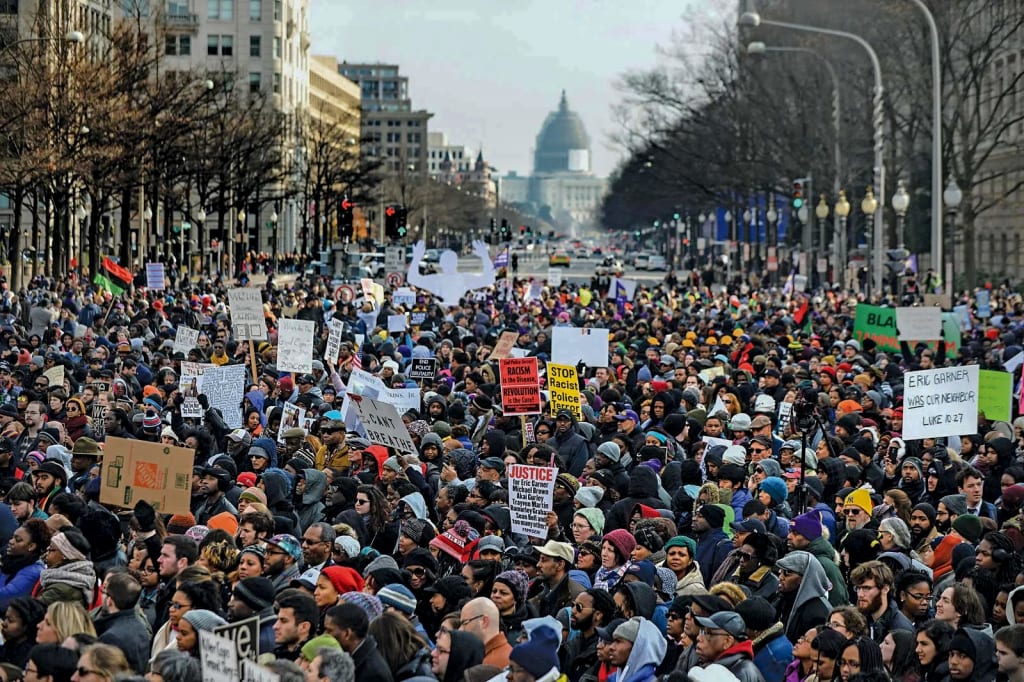Identity-Based Movements
Empowering Voices, Catalyzing Change

In today's dynamic socio-political landscape, identity-based movements have emerged as powerful agents of social change, mobilizing individuals around shared identities, experiences, and aspirations. Rooted in the recognition of systemic injustices and inequalities, these movements advocate for the rights and empowerment of marginalized communities, challenging existing power structures and fostering solidarity and resilience. In this exploration, we delve into the dynamics of identity-based movements, their origins, strategies, and enduring impact on society.
Understanding Identity-Based Movements
Identity-based movements, also known as social identity movements, center around shared identities such as race, ethnicity, gender, sexuality, religion, or nationality. These movements arise in response to systemic discrimination, marginalization, and oppression faced by marginalized communities, seeking to address injustices and promote equality and social justice. By amplifying marginalized voices and experiences, identity-based movements challenge dominant narratives and advocate for systemic change.
Origins and Evolution
Identity-based movements have deep historical roots, dating back to struggles for civil rights, women's liberation, LGBTQ+ rights, indigenous rights, and beyond. Throughout history, marginalized communities have organized and mobilized to assert their rights and demand recognition and dignity. Over time, these movements have evolved in response to changing social, political, and cultural contexts, adopting new strategies and tactics to advance their goals.
Strategies and Tactics
Identity-based movements employ a variety of strategies and tactics to achieve their objectives, including grassroots organizing, protests, direct action, advocacy, legal challenges, and cultural activism. These movements often utilize social media and digital platforms to amplify their message, mobilize supporters, and raise awareness about key issues. Moreover, coalition-building and solidarity with other marginalized groups are central to the success of identity-based movements, as they seek to build broad-based alliances and amplify their collective power.
Intersectionality and Solidarity
Central to identity-based movements is the recognition of intersectionality—the interconnected nature of social identities and experiences. Intersectionality acknowledges that individuals experience multiple forms of oppression and discrimination based on their intersecting identities, such as race, gender, class, sexuality, and ability. By centering intersectionality, identity-based movements foster solidarity and collaboration across diverse communities, recognizing the importance of addressing multiple forms of oppression simultaneously.
Impact and Legacy
Identity-based movements have had a profound impact on society, catalyzing significant social, political, and cultural changes. From the civil rights movement in the United States to the LGBTQ+ rights movement worldwide, these movements have secured legal protections, challenged discriminatory policies, and shifted public attitudes and perceptions. Moreover, identity-based movements have sparked broader social movements for justice and equality, inspiring generations of activists to continue the struggle for a more just and equitable world.
Challenges and Resilience
Despite their successes, identity-based movements face numerous challenges, including backlash, co-optation, and internal divisions. Moreover, systemic inequalities and power imbalances often pose significant barriers to progress, requiring sustained collective action and resilience. However, identity-based movements have demonstrated remarkable resilience and adaptability, continuing to mobilize and organize in the face of adversity and opposition.
Conclusion
In conclusion, identity-based movements stand as powerful catalysts for social change, amplifying the voices of marginalized communities and challenging systemic injustices. By centering shared identities, experiences, and aspirations, these movements foster solidarity, resilience, and collective action in the face of adversity.
As we navigate the complexities of the 21st century, identity-based movements offer a beacon of hope and inspiration, reminding us of the power of collective action and the importance of standing in solidarity with marginalized communities. However, their work is far from over. In the face of persistent inequalities, discrimination, and oppression, identity-based movements continue to mobilize, organize, and advocate for justice and equality.
Moving forward, it is essential that we amplify the voices of marginalized communities, center their experiences in our activism, and work together to dismantle the systems of oppression that perpetuate inequality and injustice. By standing in solidarity with identity-based movements, we can create a more just, equitable, and inclusive world where all individuals are valued, respected, and empowered to thrive.
Let us draw inspiration from the resilience and determination of identity-based movements as we continue the struggle for social justice and liberation. Together, let us build a future where every voice is heard, every identity is celebrated, and every individual has the opportunity to live with dignity and freedom.
About the Creator
Mohamed Ali
Mohamed Ali is a passionate writer and researcher with a keen interest in exploring the complexities of human behavior and society through the lens of sociology. With a background in sociology and psychology.






Comments
There are no comments for this story
Be the first to respond and start the conversation.